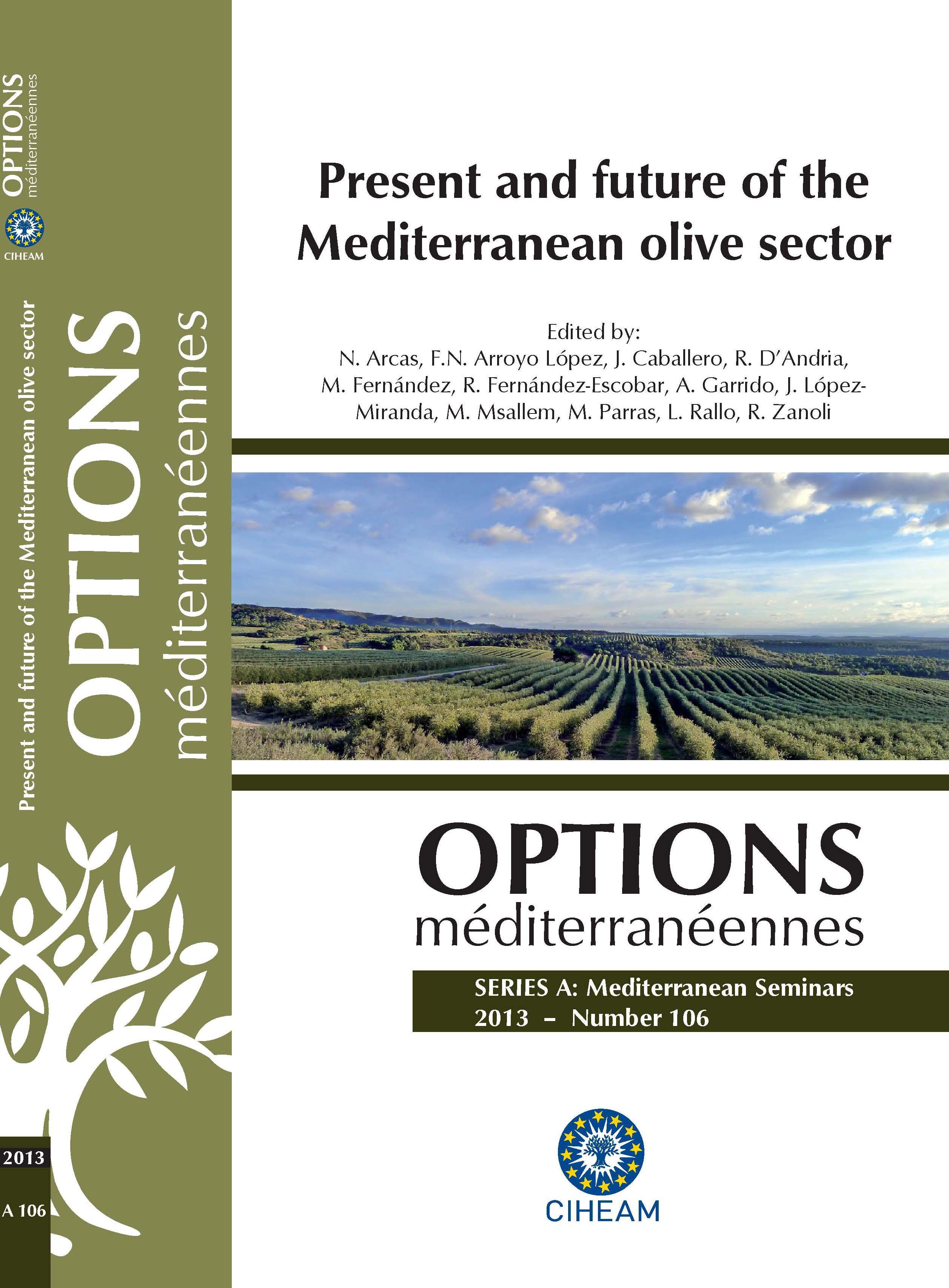| Article précédent | p. 67-64 | Article suivant |
Table olive processing technologies
Olive is one of the most important agricultural products of the countries in the Mediterranean basin. Olive and olive oil play a leading role in the Mediterranean diet, being one of the best and healthiest dietary habits. Olives are processed either as table olives or used for olive oil extraction. Though the processing methods of table olives vary according to the variety, ripeness and consumer habits, they can be classified under three main headlines: (1) Treated green olives (Spanish style green olives); (2) Olives darkened by oxidation (ripe olives); and (3) Natural black olives. Turkey, playing an important role in world table olive production, processes 70% of its production for olive oil production while leaving the rest 30% for table olive processing. 85% of the olives are processed as black table olives and the rest, 15%, is processed as green table olives. Turkish consumer preferences are still in favor of natural green and black olives.
Les olives sont l'un des produits agricoles les plus importants des pays du bassin méditerranéen. Les olives et l'huile d'olive jouent un rôle déterminant dans la Diète Méditerranéenne, car étant l'une des habitudes alimentaires les meilleures et les plus favorables à la santé. Les olives sont soit élaborées sous forme d'olives de table ou utilisées pour l'extraction d'huile d'olive. Bien que les méthodes de traitement des olives de table varient en fonction de la variété, de la maturité et des habitudes des consommateurs, on peut les classifier en trois grands groupes : (1) Olives vertes traitées (olives vertes à l'espagnole) ; (2) Olives noircies par oxydation (olives mûres) ; et (3) Olives noires naturelles. La Turquie, qui joue un rôle important en matière de production mondiale d'olives de table, transforme 70% de sa production en huile d'olive tandis que les 30% restants sont préparés comme olives de table. 85% des olives sont sous forme d'olives de table noires et les 15% restants sont préparés comme olives de table vertes. Les préférences des consommateurs turcs sont encore en faveur des olives et noires vertes naturelles.
- [ Afficher ]
- [ Télécharger ]
- [ Exporter la citation ]
Vous pouvez télécharger la citation au format :
- [ Imprimer ]
-
Mots-clés
LUTTE APRES RECOLTE, OLIVE, TECHNOLOGIE, TURQUIECiter cet article
Cillidag S.I. Table olive processing technologies. In : Arcas N. (ed.), Arroyo López F.N. (ed.), Caballero J. (ed.), D'Andria R. (ed.), Fernández M. (ed.), Fernandez Escobar R. (ed.), Garrido A. (ed.), López-Miranda J. (ed.), Msallem M. (ed.), Parras M. (ed.), Rallo L. (ed.), Zanoli R. (ed.). Present and future of the Mediterranean olive sector . Zaragoza: CIHEAM / IOC, 2013. p. 67-64. (Options Méditerranéennes : Série A. Séminaires Méditerranéens; n. 106). International Seminar: Present and Future of the Mediterranean Olive Sector, 2012/11/26-28, Zaragoza (Spain). http://om.ciheam.org/om/pdf/a106/00006806.pdf



